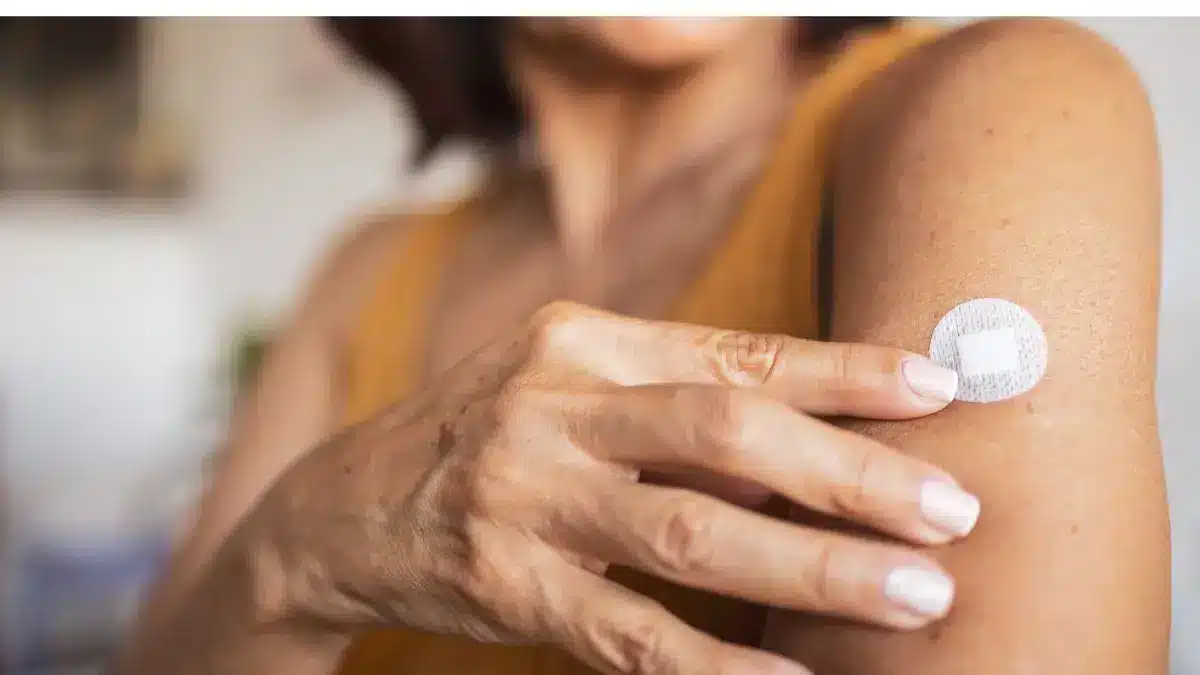How to Increase Sex Drive During Menopause? Rediscovering Intimacy
One of the aspects of Menopause that is not often talked about is how it affects a woman’s sexual health and desires.
A fulfilling sex life is often desired by women and their partners irrespective of their ages, which is often hampered by Menopause.
The changes in the hormones often lead to vaginal dryness, reduced blood flow to the genitals, and an overall decrease in the libido or sex drive.
As per a study by the National Center of Biotechnology and Information, 40 to 55% of women face low libido during Menopause.
So how to increase sex drive during Menopause?
Keep reading to understand how Menopause causes low sex drive and learn tips to revive it.
What causes low sex drive
Hormonal fluctuations during Menopause, particularly the decline in Estrogen and Testosterone, can impact sexual desire and arousal.
Estrogen, in particular, plays a crucial role in maintaining vaginal lubrication, promoting blood flow to the pelvic area, and supporting healthy vaginal tissues.
As Estrogen levels decrease, women may experience vaginal dryness, thinning of the vaginal walls (vaginal atrophy), and reduced sensitivity in the genital area.
These physical changes can contribute to discomfort, pain, and decreased interest in sexual activity.
Although research is limited, Progesterone, another hormone affected by Menopause, is thought to have a modulating effect on sexual desire.
Additionally, Testosterone, though present in lower levels in women compared to men, also contributes to libido.
As Testosterone levels decline during Menopause, women may experience a decrease in sexual desire.
Tips to revive sexual desire
Some of the commonly suggested ways to improve your sex drive include spending more time on foreplay and even scheduling time for sex.
However, this is not enough.
Some more tips that might help you bring back your libido are:
Improve self-esteem
Menopause can bring about changes in physical appearance, which may impact self-esteem and body image.
Engaging in activities that promote self-care and self-appreciation can help boost confidence and enhance sexual desire.
This may include practicing positive affirmations, engaging in regular physical activity, and focusing on self-care routines that make you feel good about yourself.
Lifestyle changes

Engaging in regular exercise, prioritizing self-care, and maintaining a healthy lifestyle can contribute to overall well-being and potentially boost sex drive.
Exercise releases endorphins, which are natural mood enhancers, and improves blood flow to the pelvic area, potentially boosting libido.
Additionally, chronic stress can negatively affect sexual desire and overall well-being.
Incorporating stress management techniques such as mindfulness, deep breathing exercises, meditation, or engaging in activities that bring joy and relaxation can help reduce stress levels and enhance sexual desire.
Open communication
Effective communication with your partner is crucial when addressing changes in sexual desire during Menopause.
Express your needs, concerns, and desires openly and honestly, fostering a supportive and understanding environment for intimacy.
Engage in conversations about sexual preferences, explore new experiences, and maintain an emotional connection with your partner.
Explore sensate focus and intimacy exercises
Sensate focus exercises involve gradually reintroducing touch and sensual experiences with your partner without the pressure of sexual performance.
This technique allows couples to focus on pleasurable sensations and intimacy, fostering a deeper emotional connection and potentially increasing sexual desire.
It can be an effective approach for women experiencing decreased sex drive during Menopause.
Natural remedies

Some women find relief from menopausal symptoms and an increase in libido through natural remedies.
The evidence is limited, but certain herbal supplements, such as maca root, ginseng, and black cohosh, have been traditionally used to support sexual health.
However, it is important to consult with a healthcare professional before using any herbal supplements to ensure they are safe and suitable for your individual needs.
Lubricants and moisturizers
Vaginal dryness can be a common symptom during Menopause, leading to discomfort during sexual activity.
Using water-based lubricants and vaginal moisturizers can significantly improve comfort and pleasure by providing lubrication and enhancing sensations.
Hormone replacement therapy (HRT)
In some cases, hormone replacement therapy may be recommended to alleviate menopausal symptoms, including a decrease in sexual desire.
Research has shown that HRT can boost sex drive, improve sexual function, increase desire, and enhance orgasmic response.
However, the decision to pursue HRT should be made in consultation with a healthcare professional, taking into account individual health history and potential risks and benefits.
Takeaway
It is important to recognize that Menopause does not signify the end of a fulfilling and satisfying sex life.
Improving self-esteem, reducing stress, open communication, exploring natural remedies, and utilizing lubricants and moisturizers are effective approaches to reviving sexual desire.
Additionally, hormone replacement therapy may be considered in consultation with a healthcare professional.
Seeking professional guidance, maintaining open communication with your partner, and exploring different intimacy exercises can help women continue to enjoy intimacy and pleasure during Menopause.
Frequently Asked Questions
What can a menopausal woman take to increase her sex drive?
A menopausal woman can explore options such as hormone replacement therapy (HRT) or natural remedies like herbal supplements, under the guidance of a healthcare professional, to potentially increase her sex drive.
Does sex drive return after Menopause?
Sex drive can vary among women after Menopause. While some women may experience a return or increase in sex drive, others may not. Factors such as hormonal changes, physical health, emotional well-being, and individual differences can influence the level of sexual desire experienced post-menopause.
Why do I have no sex drive during Menopause?
The imbalance in Estrogen, Progesterone, and Testosterone levels during Menopause can contribute to a decrease in sex drive. Additionally, physical changes like vaginal dryness and reduced blood flow to the genitals, as well as emotional factors and relationship dynamics, can influence the loss of sex drive during this phase.
WowRx uses only high-quality sources while writing our articles. Please read our content information policy to know more about how we keep our content reliable and trustworthy.






